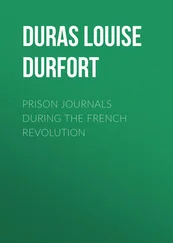Томас Карлейль - The French Revolution - A History
Здесь есть возможность читать онлайн «Томас Карлейль - The French Revolution - A History» — ознакомительный отрывок электронной книги совершенно бесплатно, а после прочтения отрывка купить полную версию. В некоторых случаях можно слушать аудио, скачать через торрент в формате fb2 и присутствует краткое содержание. Жанр: foreign_prose, История, foreign_edu, foreign_antique, на английском языке. Описание произведения, (предисловие) а так же отзывы посетителей доступны на портале библиотеки ЛибКат.
- Название:The French Revolution: A History
- Автор:
- Жанр:
- Год:неизвестен
- ISBN:нет данных
- Рейтинг книги:4 / 5. Голосов: 1
-
Избранное:Добавить в избранное
- Отзывы:
-
Ваша оценка:
- 80
- 1
- 2
- 3
- 4
- 5
The French Revolution: A History: краткое содержание, описание и аннотация
Предлагаем к чтению аннотацию, описание, краткое содержание или предисловие (зависит от того, что написал сам автор книги «The French Revolution: A History»). Если вы не нашли необходимую информацию о книге — напишите в комментариях, мы постараемся отыскать её.
The French Revolution: A History — читать онлайн ознакомительный отрывок
Ниже представлен текст книги, разбитый по страницам. Система сохранения места последней прочитанной страницы, позволяет с удобством читать онлайн бесплатно книгу «The French Revolution: A History», без необходимости каждый раз заново искать на чём Вы остановились. Поставьте закладку, и сможете в любой момент перейти на страницу, на которой закончили чтение.
Интервал:
Закладка:
And yet, withal, he could not do it. Hast thou considered how each man's heart is so tremulously responsive to the hearts of all men; hast thou noted how omnipotent is the very sound of many men? How their shriek of indignation palsies the strong soul; their howl of contumely withers with unfelt pangs? The Ritter Gluck confessed that the ground-tone of the noblest passage, in one of his noblest Operas, was the voice of the Populace he had heard at Vienna, crying to their Kaiser: Bread! Bread! Great is the combined voice of men; the utterance of their instincts, which are truer than their thoughts: it is the greatest a man encounters, among the sounds and shadows, which make up this World of Time. He who can resist that, has his footing some where beyond Time. De Launay could not do it. Distracted, he hovers between the two; hopes in the middle of despair; surrenders not his Fortress; declares that he will blow it up, seizes torches to blow it up, and does not blow it. Unhappy old de Launay, it is the death-agony of thy Bastille and thee! Jail, Jailoring and Jailor, all three, such as they may have been, must finish.
For four hours now has the World-Bedlam roared: call it the World-Chimaera, blowing fire! The poor Invalides have sunk under their battlements, or rise only with reversed muskets: they have made a white flag of napkins; go beating the chamade, or seeming to beat, for one can hear nothing. The very Swiss at the Portcullis look weary of firing; disheartened in the fire-deluge: a porthole at the drawbridge is opened, as by one that would speak. See Huissier Maillard, the shifty man! On his plank, swinging over the abyss of that stone-Ditch; plank resting on parapet, balanced by weight of Patriots,—he hovers perilous: such a Dove towards such an Ark! Deftly, thou shifty Usher: one man already fell; and lies smashed, far down there, against the masonry! Usher Maillard falls not: deftly, unerring he walks, with outspread palm. The Swiss holds a paper through his porthole; the shifty Usher snatches it, and returns. Terms of surrender: Pardon, immunity to all! Are they accepted?—"Foi d'officier, On the word of an officer," answers half-pay Hulin,—or half-pay Elie, for men do not agree on it, "they are!" Sinks the drawbridge,—Usher Maillard bolting it when down; rushes-in the living deluge: the Bastille is fallen! Victoire! La Bastille est prise! ( Histoire de la Revolution, par Deux Amis de la Liberte, i. 267-306; Besenval, iii. 410-434; Dusaulx, Prise de la Bastille, 291-301. Bailly, Memoires ( Collection de Berville et Barriere ), i. 322 et seqq. )
Chapter 1.5.VII
Not a Revolt
Why dwell on what follows? Hulin's foi d'officer should have been kept, but could not. The Swiss stand drawn up; disguised in white canvas smocks; the Invalides without disguise; their arms all piled against the wall. The first rush of victors, in ecstacy that the death-peril is passed, 'leaps joyfully on their necks;' but new victors rush, and ever new, also in ecstacy not wholly of joy. As we said, it was a living deluge, plunging headlong; had not the Gardes Francaises, in their cool military way, 'wheeled round with arms levelled,' it would have plunged suicidally, by the hundred or the thousand, into the Bastille-ditch.
And so it goes plunging through court and corridor; billowing uncontrollable, firing from windows—on itself: in hot frenzy of triumph, of grief and vengeance for its slain. The poor Invalides will fare ill; one Swiss, running off in his white smock, is driven back, with a death-thrust. Let all prisoners be marched to the Townhall, to be judged!—Alas, already one poor Invalide has his right hand slashed off him; his maimed body dragged to the Place de Greve, and hanged there. This same right hand, it is said, turned back de Launay from the Powder-Magazine, and saved Paris.
De Launay, 'discovered in gray frock with poppy-coloured riband,' is for killing himself with the sword of his cane. He shall to the Hotel-de-Ville; Hulin Maillard and others escorting him; Elie marching foremost 'with the capitulation-paper on his sword's point.' Through roarings and cursings; through hustlings, clutchings, and at last through strokes! Your escort is hustled aside, felled down; Hulin sinks exhausted on a heap of stones. Miserable de Launay! He shall never enter the Hotel de Ville: only his 'bloody hair-queue, held up in a bloody hand;' that shall enter, for a sign. The bleeding trunk lies on the steps there; the head is off through the streets; ghastly, aloft on a pike.
Rigorous de Launay has died; crying out, "O friends, kill me fast!" Merciful de Losme must die; though Gratitude embraces him, in this fearful hour, and will die for him; it avails not. Brothers, your wrath is cruel! Your Place de Greve is become a Throat of the Tiger; full of mere fierce bellowings, and thirst of blood. One other officer is massacred; one other Invalide is hanged on the Lamp-iron: with difficulty, with generous perseverance, the Gardes Francaises will save the rest. Provost Flesselles stricken long since with the paleness of death, must descend from his seat, 'to be judged at the Palais Royal:'—alas, to be shot dead, by an unknown hand, at the turning of the first street!—
O evening sun of July, how, at this hour, thy beams fall slant on reapers amid peaceful woody fields; on old women spinning in cottages; on ships far out in the silent main; on Balls at the Orangerie of Versailles, where high-rouged Dames of the Palace are even now dancing with double-jacketted Hussar-Officers;—and also on this roaring Hell porch of a Hotel-de-Ville! Babel Tower, with the confusion of tongues, were not Bedlam added with the conflagration of thoughts, was no type of it. One forest of distracted steel bristles, endless, in front of an Electoral Committee; points itself, in horrid radii, against this and the other accused breast. It was the Titans warring with Olympus; and they scarcely crediting it, have conquered: prodigy of prodigies; delirious,—as it could not but be. Denunciation, vengeance; blaze of triumph on a dark ground of terror: all outward, all inward things fallen into one general wreck of madness!
Electoral Committee? Had it a thousand throats of brass, it would not suffice. Abbe Lefevre, in the Vaults down below, is black as Vulcan, distributing that 'five thousand weight of Powder;' with what perils, these eight-and-forty hours! Last night, a Patriot, in liquor, insisted on sitting to smoke on the edge of one of the Powder-barrels; there smoked he, independent of the world,—till the Abbe 'purchased his pipe for three francs,' and pitched it far.
Elie, in the grand Hall, Electoral Committee looking on, sits 'with drawn sword bent in three places;' with battered helm, for he was of the Queen's Regiment, Cavalry; with torn regimentals, face singed and soiled; comparable, some think, to 'an antique warrior;'—judging the people; forming a list of Bastille Heroes. O Friends, stain not with blood the greenest laurels ever gained in this world: such is the burden of Elie's song; could it but be listened to. Courage, Elie! Courage, ye Municipal Electors! A declining sun; the need of victuals, and of telling news, will bring assuagement, dispersion: all earthly things must end.
Along the streets of Paris circulate Seven Bastille Prisoners, borne shoulder-high: seven Heads on pikes; the Keys of the Bastille; and much else. See also the Garde Francaises, in their steadfast military way, marching home to their barracks, with the Invalides and Swiss kindly enclosed in hollow square. It is one year and two months since these same men stood unparticipating, with Brennus d'Agoust at the Palais de Justice, when Fate overtook d'Espremenil; and now they have participated; and will participate. Not Gardes Francaises henceforth, but Centre Grenadiers of the National Guard: men of iron discipline and humour,—not without a kind of thought in them!
Читать дальшеИнтервал:
Закладка:
Похожие книги на «The French Revolution: A History»
Представляем Вашему вниманию похожие книги на «The French Revolution: A History» списком для выбора. Мы отобрали схожую по названию и смыслу литературу в надежде предоставить читателям больше вариантов отыскать новые, интересные, ещё непрочитанные произведения.
Обсуждение, отзывы о книге «The French Revolution: A History» и просто собственные мнения читателей. Оставьте ваши комментарии, напишите, что Вы думаете о произведении, его смысле или главных героях. Укажите что конкретно понравилось, а что нет, и почему Вы так считаете.












